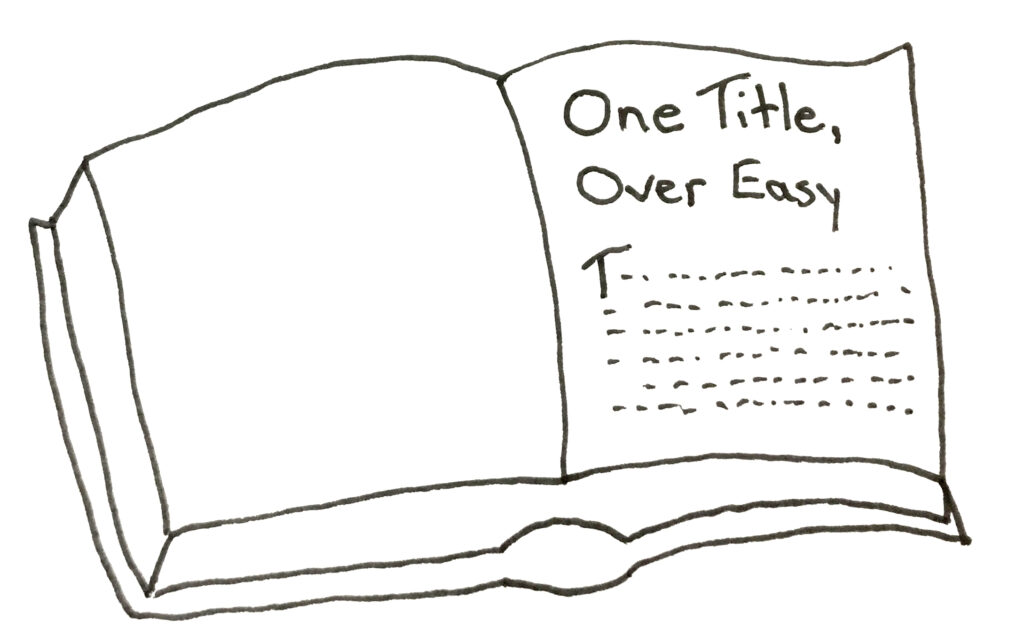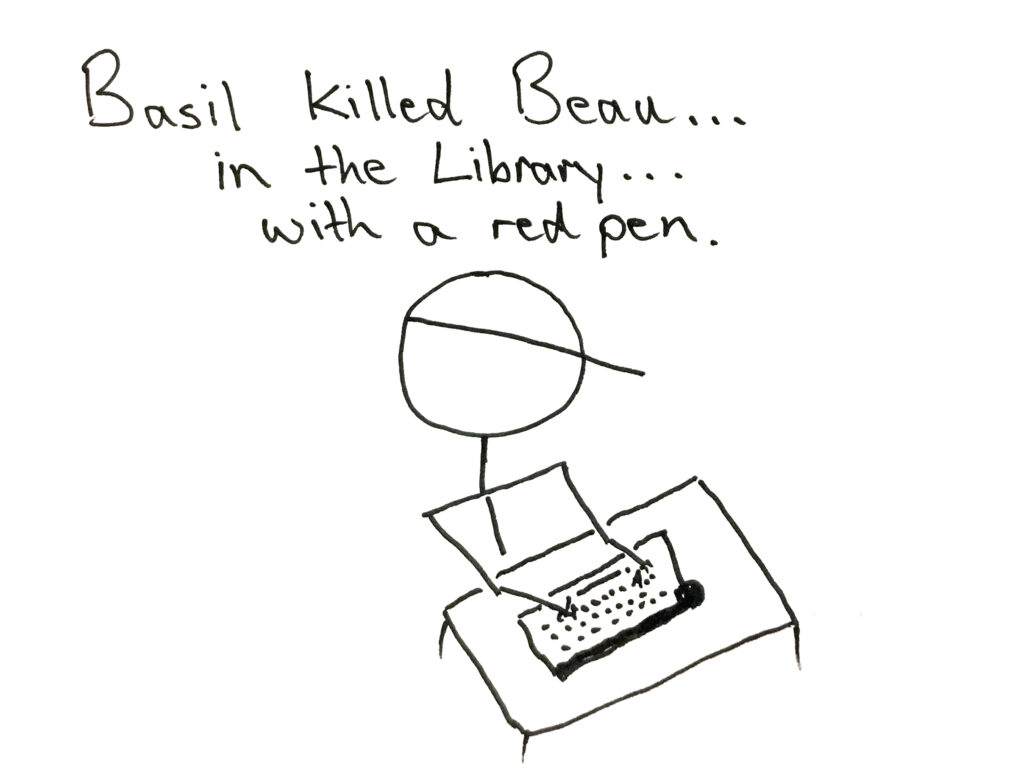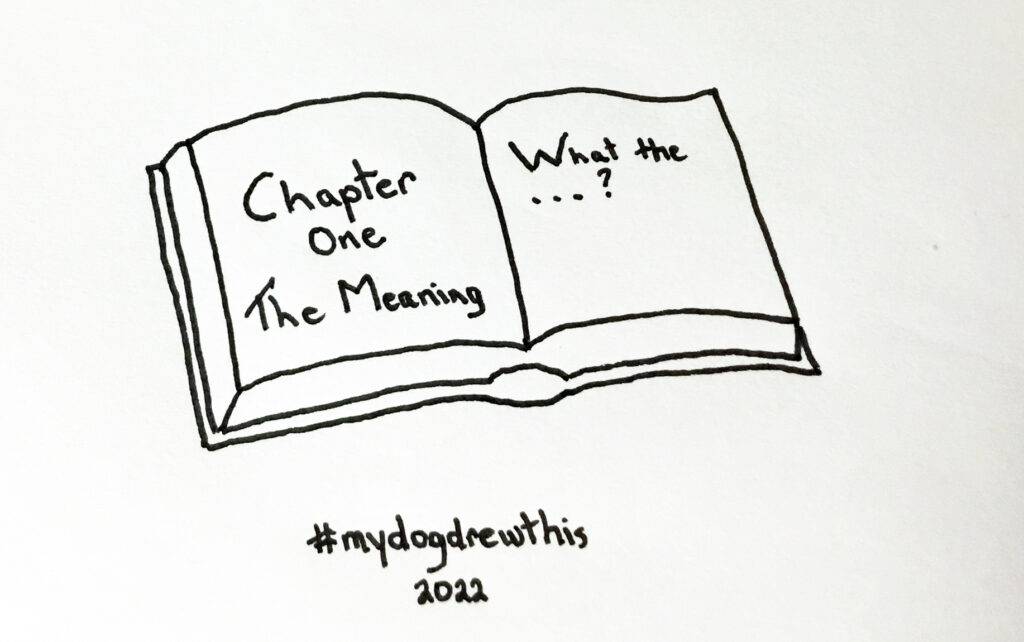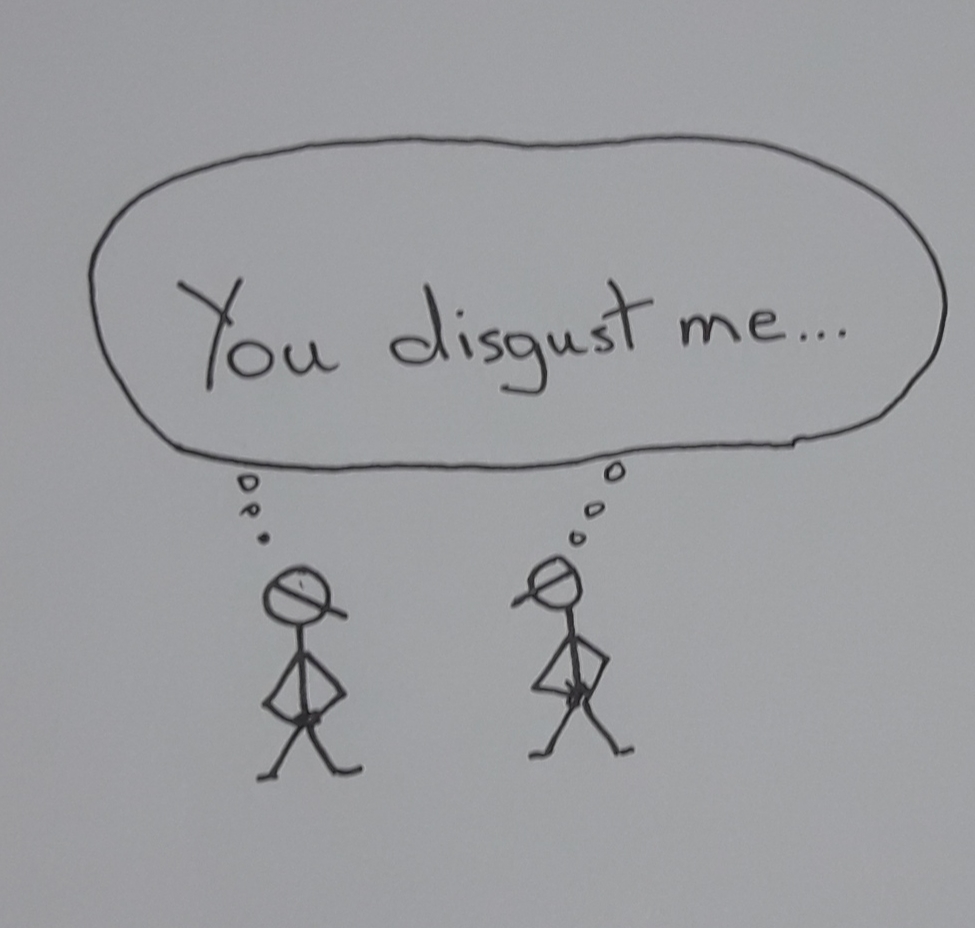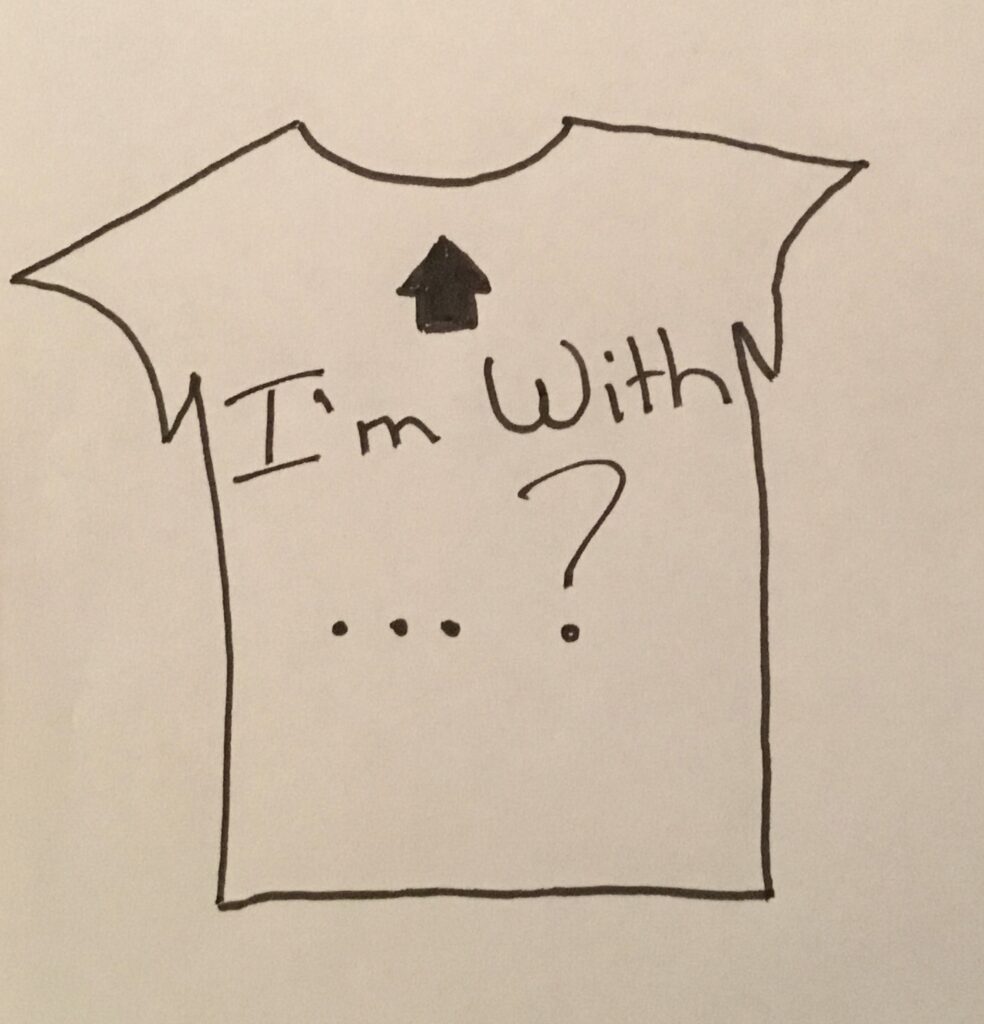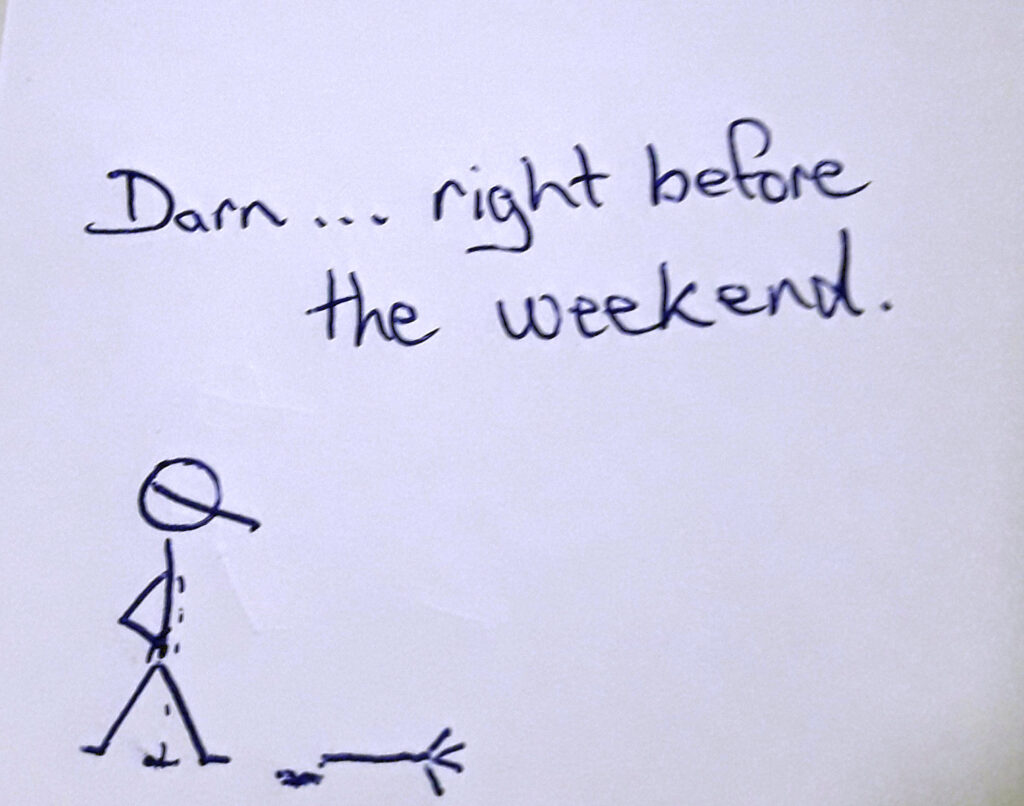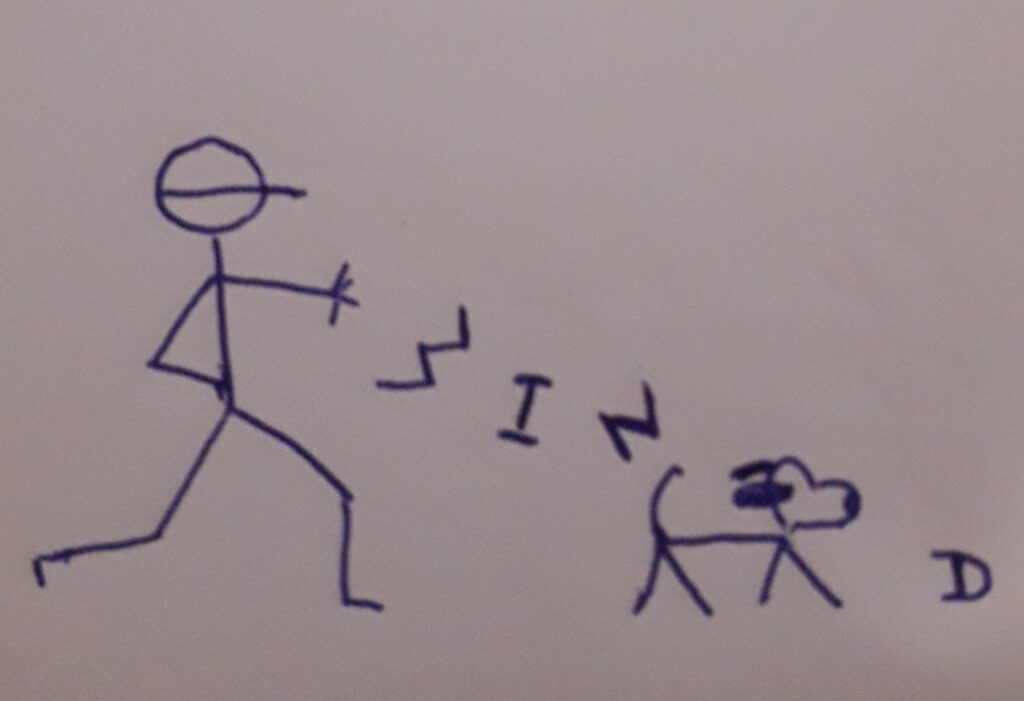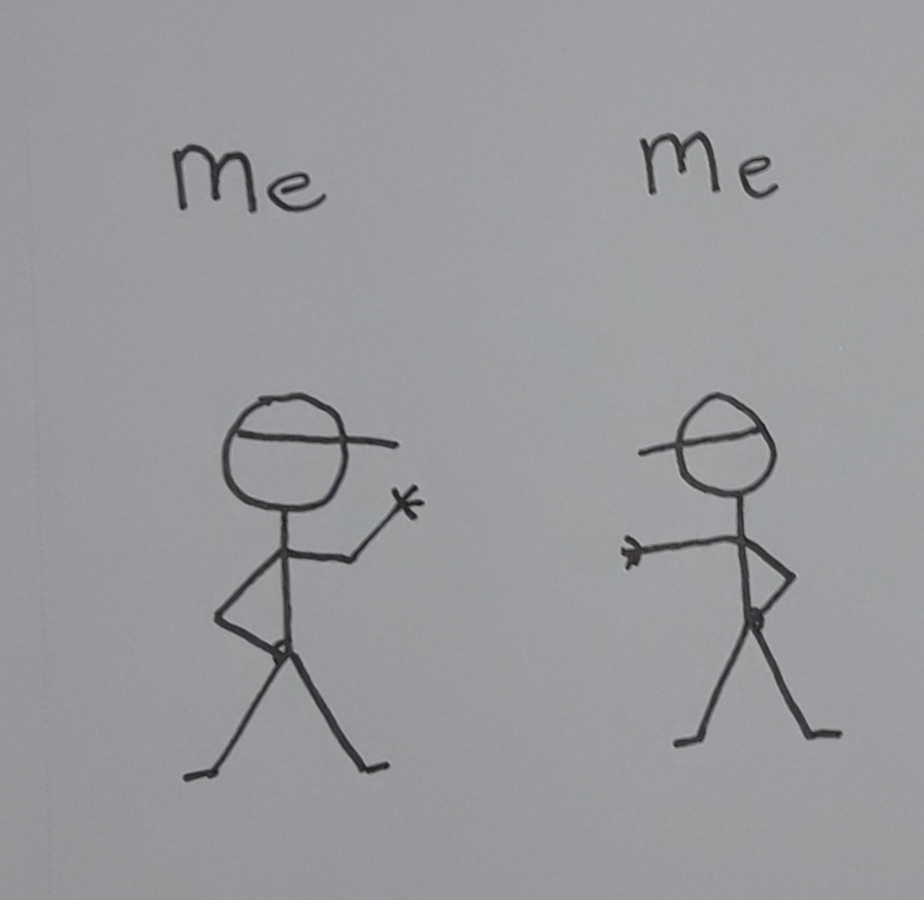
Composing and revising scratch two very different parts of my writing brain.
When I think I have something to say, a scene that needs describing, for example, it gets written fairly quickly. The result communicates effectively, the scene is set and I move to the next bit before I forget what it was that I really wanted to write about, normally some point of plot that needs establishing. That’s how I keep going, more or less from one plot point to the next. My composing brain is motivated by narrative. It wants to tell a story.
Eventually, though, I decide to look back at what I did, not yesterday or the day before but three months or six months ago. Long enough to have forgotten it, really. And there is a different itchy bit of my brain which makes itself felt, the part that both motivates and takes satisfaction from revision.
Here’s an example.
His shoes were too big, sloppy, making it hard to run closely parallel to the train. Sweat on the back of his neck and under his arms collected, untouched by the drying wind. Arms covered by a jacket too thick for summer pumped in time with his legs. Belongings bounced on his back, tightly wrapped and tied in a small turkey.
I looked at it this morning, just trying to prime the pump after having taken a few days off. The edits I made are below, followed by the most recent version.
His shoes were too big, sloppy, making it hard to run closely parallel to the train. Untouched by the drying wind, rivulets of sweat trickled down his spine and pooled Sweat on the back of his neck and under his arms collected,at his waist. untouched by the drying wind. Arms covered by a jacket thicker than summer pumped in time withto the rhythm of his legs his legs., setting the tightly wrapped bundle on his back bouncing in time with his strides. Belongings bounced on his back, tightly wrapped and tied in a small turkey. His too-big borrowed shoes were sloppy, making a run parallel to the train even more precarious, and he recalled the advice that had set him on this course.
Untouched by the drying wind, rivulets of sweat trickled down his spine and pooled at his waist. Arms covered by a jacket thicker than summer pumped to the rhythm of his legs, setting the tightly wrapped bundle on his back bouncing in time with his strides. His too-big borrowed shoes were sloppy, making a run parallel to the train even more precarious, and he recalled the advice that had set him on this course.
So, I changed almost everything.
And nothing at all.
The difference in my brain is how it feels, the sound that it makes as I read it, having chosen some language for alliterative effect, and some for descriptive concision. I also took out the term “turkey,” because this is so early in a novel that readers are unlikely to understand it. It was a term used by men riding the rails to describe small bundles of personal possessions they carried with them and, as I changed the sentence it was in, it no longer fit. He would have had a turkey bouncing on his back, not an image I was going for. I now see that I was never comfortable with it there and deleting the reference scratches my revision brain. Right on the itchy bit.
And I think it’s better now. It’s not finished, of course, as I already feel that a couple of changes will be obvious the next time I come back to it.
So, we compose to say something. And we revise to say it better. The difference for me is time. I have to bring a fresh brain to it, a brain that is capable of reading what it has written without taking shortcuts of familiarity and memory. As well, the satisfaction of having written must have abated because it gets in the way of change.
And I have to bring a brain in need of a good scratch in a hard-to-reach spot.

